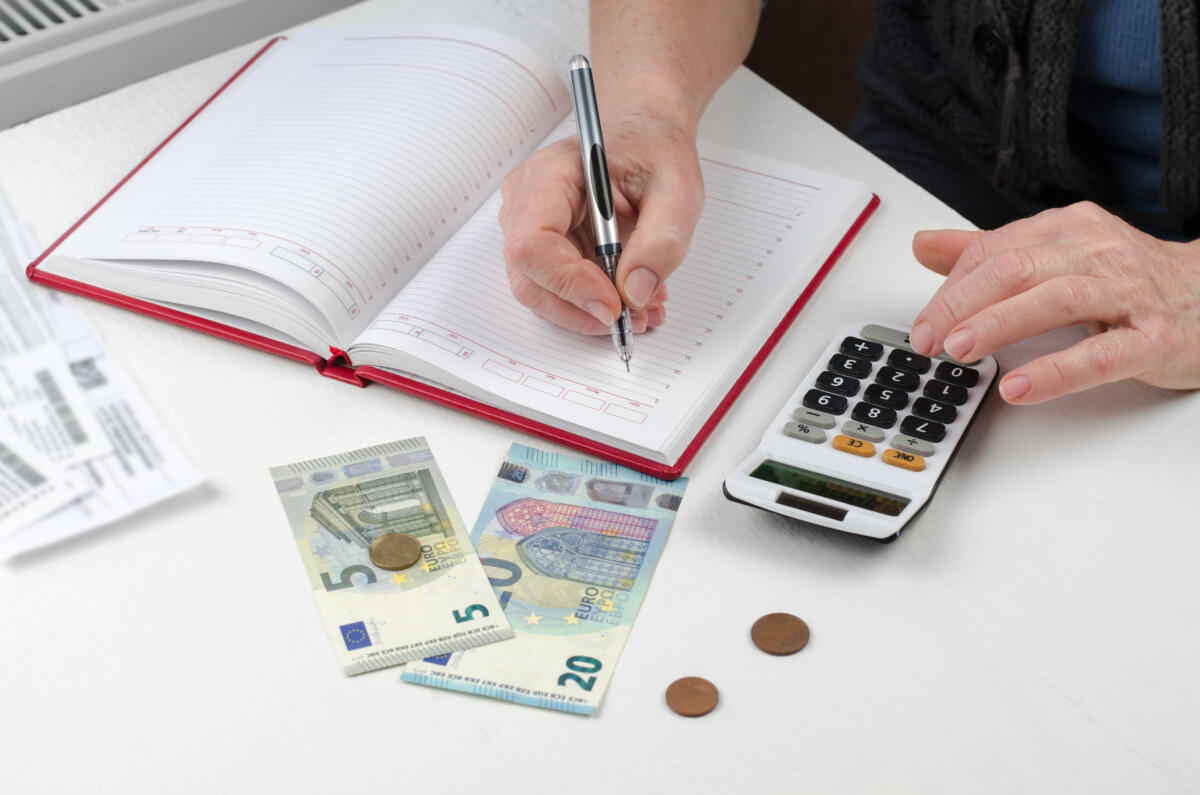

When unexpected bills or emergencies hit, a cash advance can help you manage immediate expenses. But once the relief settles in, the real challenge begins — fitting repayment into your monthly finances.
Learning how to budget with cash advance payments is key to staying on track. A proper budget plan after cash advance helps you avoid financial stress, maintain control, and build healthier habits for the future.
If you need support or guidance, visit AdvanceCash or call (833) 501-3363 for transparent lending options that suit your income and goals.
Why Budgeting After a Cash Advance Is Essential
When you borrow money, the goal isn’t just to repay it — it’s to regain balance afterward. Without a plan, repayment can feel overwhelming.
Here’s why creating a budget plan matters after taking a cash advance:
-
It helps you manage your income more effectively.
-
You avoid missing payments or late fees.
-
It improves your overall credit stability.
-
You build financial discipline for the future.
Budgeting ensures that your short-term loan doesn’t turn into long-term debt.
Understanding Your Cash Advance Repayment
Before adjusting your budget, start by understanding your repayment structure. Knowing the total amount due, interest rate, and timeline helps you plan with confidence.
Cash advances usually have short repayment periods — often tied to your next payday. Lenders typically deduct repayment directly from your checking account.
Make sure you know:
-
Your exact due date.
-
The total repayment amount, including fees.
-
The method and frequency of repayment.
If anything feels unclear, contact AdvanceCash or call (833) 501-3363. Their team can explain your terms and help you prepare your budget accordingly.
Step-by-Step Guide to Build a Budget Plan After Cash Advance
Creating a budget doesn’t require complex spreadsheets or apps. Start simple and build a structure that fits your lifestyle.
Here’s how to do it step by step.
Step 1: Calculate Your Total Income
The first step is to determine how much money you bring in each month. Include every income source — your job, freelance work, side hustle, or government benefits.
Once you know your total income, you can plan your spending with clear boundaries.
Step 2: Identify Essential Expenses
Next, list the expenses you can’t skip — your fixed monthly costs. These usually include:
-
Rent or mortgage
-
Utilities like electricity, water, and internet
-
Groceries and daily needs
-
Transportation costs
-
Health insurance or medications
After listing these essentials, subtract them from your income to see how much remains for loan repayment and other spending.
Step 3: Add Your Cash Advance Repayment
Now that you know your income and essential expenses, factor in your cash advance repayment. Treat it as a priority expense, just like rent or utilities.
Let’s say your monthly income is $3,000. After paying rent, bills, and essentials, you have $700 left. If your loan repayment is $275, you’ll still have around $425 for discretionary spending and savings.
The goal is to keep your loan repayment within 15–20% of your total income so that it remains manageable.
Step 4: Track Non-Essential Spending
After covering essentials and your loan repayment, look at your discretionary expenses — the ones you can control.
These include:
-
Dining out or coffee runs
-
Streaming subscriptions
-
Entertainment or hobbies
-
Shopping or impulse buys
Try reducing these temporarily while repaying your loan. Even small cuts — like skipping takeout twice a week — can free up money for savings or early repayment.
Step 5: Build an Emergency Fund
Even during repayment, saving a little goes a long way. Set aside $20–$50 per week to start building an emergency fund. This small cushion helps you avoid borrowing again when new expenses appear.
Once your loan is paid off, you can increase your savings amount.
Step 6: Automate Payments
Automation makes repayment easier and stress-free. Set up automatic payments through your lender so that funds are deducted on your due date.
AdvanceCash offers secure, automatic repayment options to help customers stay on schedule without missing a payment. You can learn more or get assistance by calling (833) 501-3363.
Sample Budget Breakdown Without a Table
Let’s imagine a scenario where your take-home income is $3,000 each month.
Out of this amount:
-
$1,200 goes to rent and utilities.
-
$350 covers groceries and household items.
-
$250 goes to transportation or fuel.
-
$275 is allocated to your cash advance repayment.
-
$100 goes into savings or emergency funds.
-
The remaining $825 is used for personal spending, entertainment, and unexpected costs.
This structure keeps your essentials and loan repayment under control while leaving some flexibility for savings and leisure.
Remember, a budget should be realistic — not restrictive. Adjust the numbers according to your priorities.
Tips to Stick to Your Budget Plan After a Cash Advance
Creating a budget is one thing — sticking to it is another. Here are practical ways to maintain discipline while you pay off your loan:
-
Review your spending weekly. Monitor where your money goes and cut unnecessary expenses.
-
Use cash for daily expenses. It’s easier to track spending when you physically handle money.
-
Cancel or pause subscriptions. Temporarily stop non-essential services like streaming or memberships.
-
Avoid new debt. Focus on clearing your current loan before applying for another.
-
Reward yourself for milestones. Celebrate when you make a full payment or hit a savings target.
If you need expert guidance, visit AdvanceCash or call (833) 501-3363 for personalized financial advice.
Smart Repayment Habits to Pair with Budgeting
Budgeting and repayment go hand in hand. Here are some smart habits that help you stay financially stable while repaying your cash advance:
-
Pay earlier when possible: Paying before the due date can reduce interest in some cases.
-
Avoid loan rollovers: Extending your loan term increases total cost.
-
Communicate with your lender: If repayment feels difficult, contact them before missing a payment.
-
Track your payment history: Keeping receipts or screenshots helps ensure accuracy.
For more detailed repayment strategies, check out ExpressCash’s Smart Repayment Tips. It’s a great resource for staying debt-free and managing payments responsibly.
Common Mistakes to Avoid While Budgeting
Many borrowers unintentionally make small mistakes that lead to financial stress. Avoid these pitfalls:
-
Ignoring small daily expenses. Little purchases can drain your account faster than you think.
-
Skipping loan payments. Late payments result in higher fees and credit score damage.
-
Not planning for emergencies. Even a small car repair can upset your monthly budget.
-
Using new credit cards to pay loans. This only transfers debt, not solves it.
-
Failing to review spending. Without tracking, your budget loses purpose.
Avoiding these mistakes ensures that your budget with cash advance repayment stays effective.
Adjusting Your Budget When Income Changes
If your income fluctuates due to freelance work or seasonal employment, flexibility becomes vital.
When income decreases:
-
Cover essentials first.
-
Contact your lender early to discuss repayment options.
-
Reduce luxury spending immediately.
When income increases:
-
Pay off your loan faster.
-
Add more to your emergency savings.
-
Avoid unnecessary new expenses.
Small adjustments keep your budget plan after cash advance practical and stress-free.
Long-Term Financial Benefits of Budgeting
Budgeting isn’t just about surviving the loan period — it’s about building lasting habits that protect your finances.
Here’s what you gain:
-
Improved money control: You know exactly where your income goes.
-
Better credit health: On-time payments strengthen your reputation.
-
Lower stress: Financial planning removes uncertainty.
-
Future readiness: You become prepared for emergencies without borrowing again.
In short, a budget gives you peace of mind — something money can’t always buy.
Why Choose AdvanceCash for Safe and Reliable Lending
When emergencies arise, you deserve a lender who values transparency and speed. That’s why thousands of customers trust AdvanceCash.
Here’s what sets them apart:
-
Fast online application process.
-
No hidden charges or rollover fees.
-
Secure data protection and same-day approvals.
-
Customer-first approach with real support at (833) 501-3363.
Whether you’re applying for a new loan or managing your current one, AdvanceCash ensures a safe and convenient experience.
FAQs
Q1: How can I create a budget with cash advance repayments included?
List your income, subtract essential expenses, and treat your loan repayment as a fixed bill each month.
Q2: Can I still save money while repaying a loan?
Yes. Even saving $20–$50 weekly builds financial stability and prevents future debt.
Q3: What percentage of income should go toward repayment?
Keep repayments within 15–20% of your monthly income to maintain balance.
Q4: How do I handle financial hardship during repayment?
Contact your lender early. Companies like AdvanceCash often offer flexible solutions.
Q5: Where can I find repayment tips and budgeting help?
Visit ExpressCash’s Smart Repayment Tips for expert advice on debt management and budgeting.
Managing your finances after taking a cash advance doesn’t have to feel overwhelming. With a clear budget, mindful spending, and consistent repayment habits, you can regain financial control quickly.
A strong budget plan after cash advance not only helps you pay off your loan but also builds habits that protect your future.
For fast, secure, and transparent financial solutions, visit AdvanceCash or call (833) 501-3363 today.
And once you’re debt-free, continue improving your financial habits with ExpressCash’s Smart Repayment Tips.
Financial freedom starts with smart planning — and today is the perfect time to begin.





